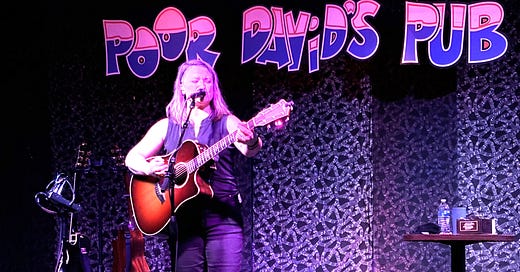This past weekend, I sat a few yards from singer-songwriter Jennifer Knapp as she performed at Poor David’s Pub in Dallas, Texas. The venue is so cozy it felt like hanging out in a living room with friends. This was the fifth or sixth time I have seen Jennifer in concert. The first occasion, in 2000, I was mostly a closeted, gay Christian struggling to believe I had any dignity or worth. It turns out, Jennifer was closeted too. In many ways we grew up and came out together.
© 2025 Karen R. Keen
Substack is the home for great culture




